
- Antique Imperial Russian
- Brand
- Antique (110)
- Carl Faberge (8)
- Faberge (134)
- Fabergé (35)
- Gustav Klingert (8)
- Handmade (12)
- Imperial (108)
- Imperial Russian (35)
- Ivan Khlebnikov (12)
- Khlebnikov (10)
- Monogram Tea Holder (7)
- Ovchinnikov (6)
- Paul Buhré (6)
- Pavel Ovchinnikov (6)
- Rare (14)
- Russian (47)
- Russian Imperial (10)
- Signed (7)
- Silver 84 (9)
- Unknown (11)
- Other (2331)
- Country
- Department
- Royalty
- Theme
- Type
1928 King Haakon VII Signed Royal Document Norway Royalty Prince Carl Coat Arms
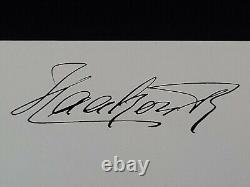
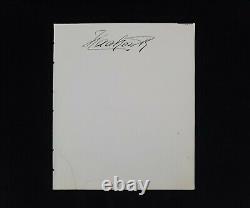


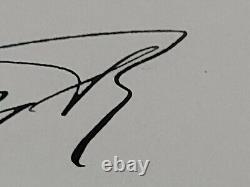
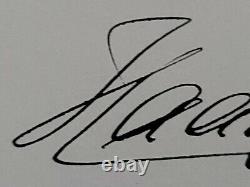
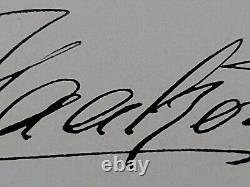

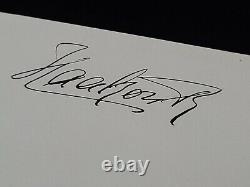
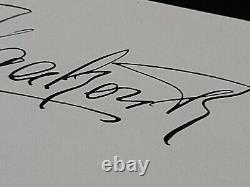

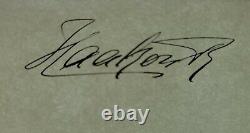


For your consideration is an exceedingly rare and historically important c. 1928 antique Russian Romanov Royal family album autograph page, hand-signed by HM King Haakon VII of Norway, as King. Minor water stain to lower left hand corner, as pictured. Album page measures approximately 5.5" x 6.5". Page will be carefully removed from the album. Haakon VII (born Prince Carl of Denmark; 3 August 1872 - 21 September 1957) was the King of Norway from November 1905 until his death in September 1957. Originally a Danish prince, he was born in Copenhagen as the son of the future Frederick VIII of Denmark and Louise of Sweden. Prince Carl was educated at the Royal Danish Naval Academy and served in the Royal Danish Navy. After the 1905 dissolution of the union between Sweden and Norway, Prince Carl was offered the Norwegian crown. Following a November plebiscite, he accepted the offer and was formally elected King of Norway by the Storting.
He took the Old Norse name Haakon and ascended to the throne as Haakon VII, becoming the first independent Norwegian monarch since 1387. As king, Haakon gained much sympathy from the Norwegian people. Although the Constitution of Norway vests the King with considerable executive powers, in practice Haakon confined himself to non-partisan roles without interfering in politics, a practice continued by his son and grandson. Norway was invaded by Nazi Germany in April 1940.
Haakon rejected German demands to legitimize the Quisling regime's puppet government, and refused to abdicate after going into exile in Great Britain. As such, he played a pivotal role in uniting the Norwegian nation in its resistance to the invasion and the subsequent five-year-long occupation during the Second World War. He became King of Norway when his grandfather Christian IX was still reigning in Denmark, and before his father and elder brother became kings of Denmark.During his reign he saw his father Frederick VIII, his elder brother Christian X, and his nephew Frederick IX ascend the throne of Denmark, in 1906, 1912 (also of Iceland from 1918 to 1944), and 1947 respectively. Haakon died at the age of 85 in September 1957, after having reigned for nearly 52 years. He was succeeded by his only son, who ascended to the throne as Olav V.

